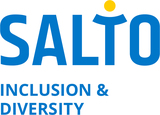Youth in Action funding
The Youth in Action programme is the European Union's current mobility and non-formal education programme. The programme promotes active European citizenship, participation, cultural diversity, and inclusion of young people with fewer opportunities.
It offers different possibilities to young people to set up projects with an international dimension (e.g. group exchanges, voluntary service, group initiatives, youth democracy projects). It also provides funding for support activities for youth workers. This aims to increase the quality of the youth projects.
The Youth in Action Programme is open to young people and youth workers in the so-called "Programme Countries". These are the EU members, the EFTA countries (Norway, Iceland, Liechtenstein) and the pre-accession country (Turkey). There are some (limited) possibilities to set up projects with other regions (neighbouring partner countries).
- Visit http://ec.europa.eu/youth/youth-in-action-programme/ or contact the National Agency of the Youth in Action programme in your country. Find a list at http://ec.europa.eu/youth/youth/contacts_en.htm
There are several types of projects that receive funding. The funding rules of the Youth in Action programme are largely based on a simple system of flat rates and fixed amounts depending on the number of participants, the activity, its duration etc.
- Youth Exchanges (where groups of young people come together)
- Group Initiatives (local projects originating from youth groups)
- Youth Democracy Projects (European partnership, allowing the pooling, at European level, of ideas, experiences and methodologies from projects or activities at local, regional, national or international level, in order to improve young people's participation)
- European Voluntary Service (young people volunteer in another country)
- Support for youth workers (training, seminars, job-shadowing, feasibility visits, etc.)
Find out more about this programme by downloading the Programme Guide or contact the National Agency in your country http://ec.europa.eu/youth/youth/contacts_en.htm.
^^ top ^^
The Youth in Action programme focuses specifically on 'ensuring that ALL young people' have access to it and special efforts are made to include groups of young people such as young offenders, ex-offenders or young people at risk of offending.
The term Inclusion relates to any young person with less opportunities, so any young person at risk of offending or with an offending history would automatically fall into this target group. In the application process, questions around inclusion ask how the applicant plans to offer additional support in order to 'include' such a young person in a programme of youth exchange or European Voluntary Service for example, giving them the same opportunities as their already 'included' peers.
The following measures can be used to support 'young people that are at risk' or 'that have special needs'.
- It is a priority within the Youth in Action programme to fund projects from groups with fewer opportunities. If equally good applications are received from a group that is at risk and a mainstream youth group, priority is given to the group with special needs e.g. this could be a youth group of youth at risk or with an offending background, depending on the country.
- It is possible to apply for 'exceptional costs' in your application if the project either involves young people with fewer opportunities and/or with special needs or where the special nature of the activities justifies it. This could be, for example, extra staff involved in the project in order to manage it properly in accordance with the policy of the organisation working with (ex-)offenders; special medical care; or other justifiable additional costs due to the specifics of undertaking an (ex-)offenders project.
- Youth Exchanges can be most interesting and challenging when organised on a multilateral level (groups from 4 or more countries involved). However, multilateral exchanges are not immediately advisable when working with extremely difficult young people. Belonging to the group of 'young people with fewer opportunities', you can also apply for bilateral projects that are less complicated to organise. They usually get priority over other bilateral projects.
- The European Commission also introduced the idea of 'Reinforced Mentoring' in voluntary service placements. This would cover some of the cost of having a mentor assist the volunteer e.g. with special needs, poor mental health, behavioural problems, etc.
- There exists 'Short Term European Voluntary Service' which is geared towards young people with 'special needs'. Instead of going abroad for a period of 2 to 12 months a 'person at risk' can take part in a voluntary service project for a minimum period of 2 weeks if it were the case that 2 months were too long.
- There is also the possibility of going on an advanced planning visit (preparation visit) to prepare youth exchanges or EVS (European Voluntary Service), and in some cases the young person with 'special needs' can accompany the youth worker, in order to get a feel for the project venue, to check the support system, to see if the European Voluntary Service host placement is appropriate for the volunteer, etc.
- Under the Group Initiative projects an amount of 1000 euro can applied for to engage the support of a coach, when young people under 18 years are involved.
- When preparing a project, it is possible to use the so-called support activities of the Youth in Action programme (feasibility visit, job-shadowing, evaluation meeting, seminar, study visit, training course, partnership building activity, networking). This would come under a separate project and funding application however.
^^ top ^^
Tips:
- Regarding the funding, if things go wrong inform the funding body as soon as possible. It is recognised that offenders and ex-offenders are a high risk group and there are many reasons for a project not to succeed. Sometimes it will be necessary to stop a project and return unspent money, at other times it will be possible to make changes to the project and retain the funding to continue the project, maybe in another direction. Don't be scared to explain what has gone wrong. This can often prevent the problem spiralling out of control.
- The above mentioned measures are incentives to encourage the participation of "young people with fewer opportunities" in your project. None of these examples are 'rules', but they are measures that COULD be taken by your National Agency of the Youth in Action programme to support your (ex-)offenders project - always check with your NA what is possible and what isn't. You will need to justify and explain why you would need the extra funding.
The NAs are there to inform you (in your own language) about the possibilities available and they can help you with your project ideas or suggest attending information sessions or training activities. Every NA also has an Inclusion Officer that works specifically to include young people with fewer opportunities and young people at risk in the Youth in Action programme. Most of the NAs also have people from 'inclusion organisations' in their selection committees.
^^ top ^^
 www.salto-youth.net/
www.salto-youth.net/
NoOffence/

 Protected from exclusion
Protected from exclusion
Downloads
The following downloads are available:
- No Offence - projects with (ex) offenders - 2010 update
How to organise (international) youth projects with young offenders, ex-offenders and young people at risk of offending or currently in prison - despite some limitations. Based on SALTO TC No Offence 2006.
